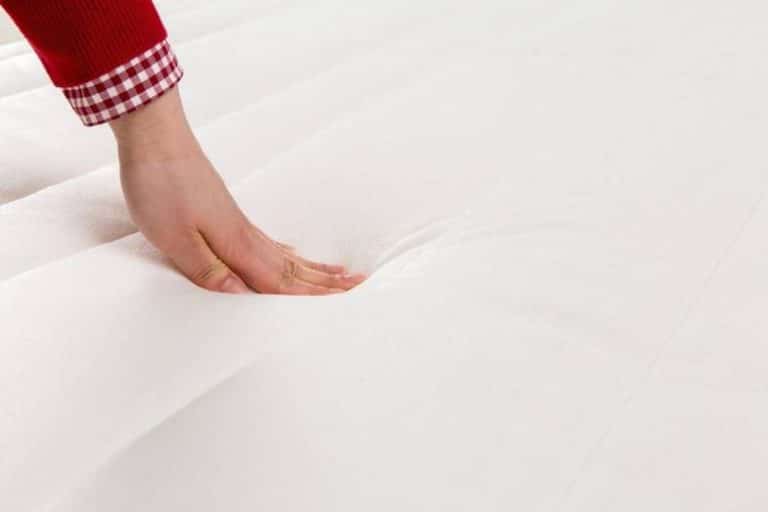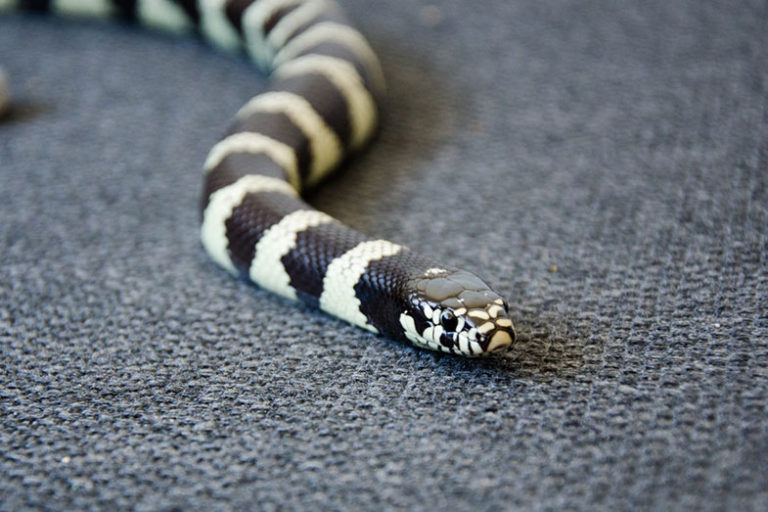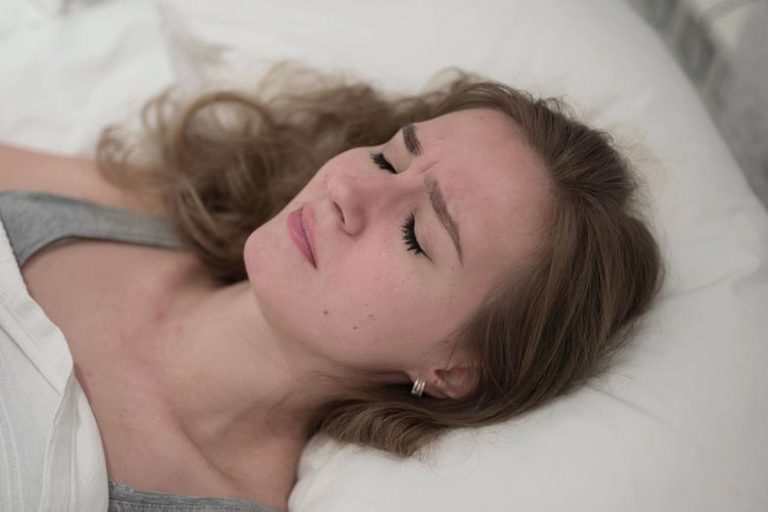Adults Who Wear Diapers to Bed – Is It Normal?
Disclosure: We may get commissions for purchases made through links in this post.
Millions of Americans suffer from nocturnal enuresis, a term that describes involuntary bed-wetting during the night. It is quite common, and many adults use a diaper to protect their sheets.
Is it normal for adults to wear diapers to bed? It is perfectly normal for adults who suffer from involuntary loss of urine to wear diapers to bed. Doing so keeps the sheets dry and clean during the night. Some adults may wear diapers to bed for other reasons unrelated to health, such as psychological reasons, which some may view as abnormal.
You may wonder what is considered normal? Wearing diapers to bed for reasons unrelated to health may not be normal to some. On the other hand, one may argue that not accepting one’s private lifestyle is not normal. So it’s a matter of opinion on whether it is normal or not.
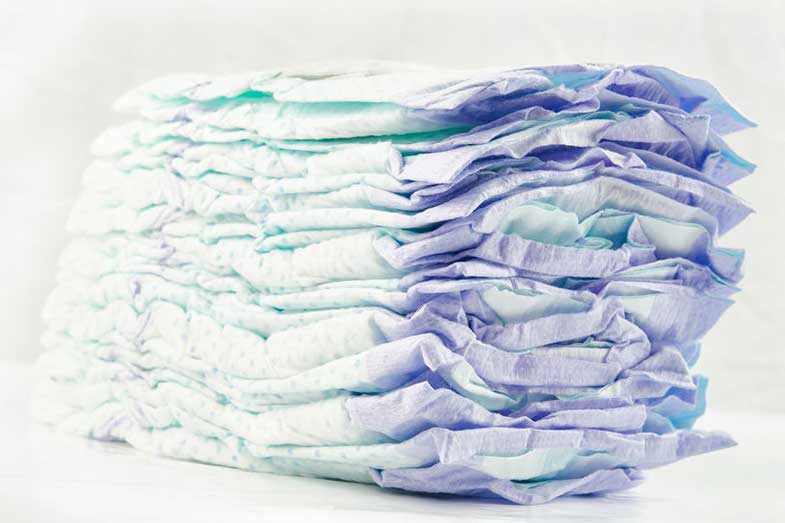
Some experts believe that wearing diapers to bed can help promote the healthy function of the bowels as well as women who are especially vulnerable to infections. Wearing diapers to bed also offers freedom from the hassle of going to the toilet. However, adult undergarments are not for everyone. For many, it may be a short-term solution.
What Percentage of Adults Wear Diapers?
It is difficult to get an exact number due to the fact that most people would not report whether or not they wear a diaper. Incontinent individuals experience involuntary loss of urine, which can be embarrassing to admit. Due to this, a percentage is hard to determine.
Adults Who Wear Diapers to Bed – Reasons
There are various reasons why adults wear diapers to bed. They include the following:
Health Reasons
Wearing diapers to bed may be necessary for adults who suffer from various health issues that cause the inability to control their bladders or bowels. People with mobility problems, such as being in wheelchairs, can benefit from wearing diapers because they are unable to go to the toilet on their own. People suffering from cognitive dysfunction, such as dementia, need to wear diapers because they may not recognize the need to go.
Fetishism and Infantilism (Childish Behavior)
In some circumstances, adult diapers are worn for comfort, fashion, fetish, or emotional reasons. Some adults like to consider themselves as a baby again. It may be best to discuss these particular reasons with a mental health professional.
Astronauts
Astronauts wear special diapers called ‘maximum absorbency garments’ (MAGS) during space shuttle liftoff and landing. They include super-absorbent fabric like the ones used in disposable diapers. MAGS were primarily developed to allow Apollo astronauts to engage in spacewalks and extra-vehicular activity for at least 6 hours.
Other Reasons
Other situations that warrant the need for adult diapers include occasions when a toilet is unavailable or not allowed. For example, wearing adult diapers can come in handy for guards not allowed to leave their posts (watchman’s urinal), and death row inmates (execution diapers). People in diving suits who are underwater for several hours may wear adult diapers. Also, pilots on long flights, to avoid toilet queues during the peak travel season.
Types of Adult Diapers
Adult diapers come in many styles made to handle a wide range of incontinence levels.
- Traditional designs like that of child diapers
- Underpants
- Incontinence pads
- Specialty diapers — Also known as ‘swim diapers’ or ‘containment swim briefs; these are worn by patients undergoing swimming or pool therapy. They are indicated mainly for patients with fecal incontinence but can also be used for urine containment.
Urinary Incontinence in Adults
Incontinence, can be a source of embarrassment for many adults. It can prevent them from enjoying life. Some choose to remain at home where they can quickly run to the toilet whenever the call of nature beckons. Wearing diapers to bed offers a viable solution for adults with urine or fecal incontinence.
Because of the stigma associated with urinary incontinence, many incontinent individuals tend to withdraw from their active lifestyles, which could pave the way to social and mental issues. Staying at home and living a sedentary lifestyle can increase their risks of obesity and other lifestyle-associated diseases.
Aside from physical and medical issues, urinary incontinence may cause stress, involuntary bladder contraction, or overflow incontinence. The last one is caused by the urinary bladder’s inability to empty fully because of an obstruction in the bladder. Affected people experience continuous dripping of urine. Unfortunately, failure to treat or manage incontinence issues can increase a person’s risk of developing infections of the skin or urethra. Incontinent adults who wear diapers to bed can have a good night’s sleep without having to worry about waking up to take trips to the toilet or wetting the bed.
Pros and Cons of Wearing Diapers to Bed
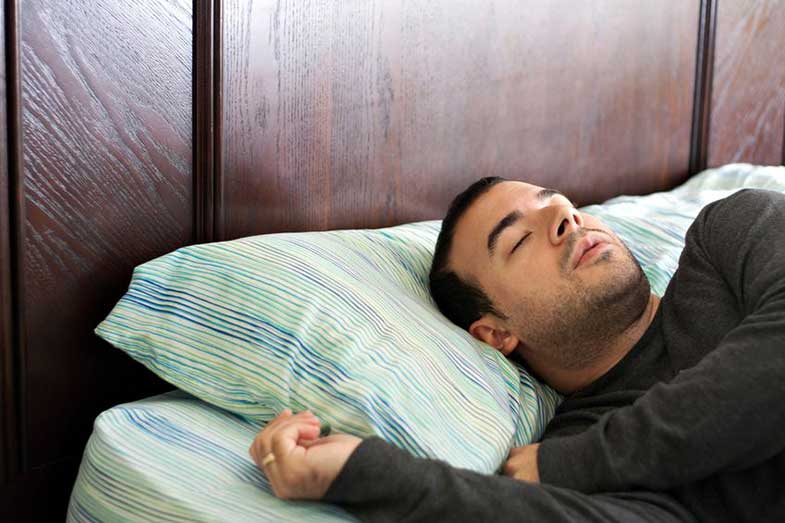
Pros
- It can help solve the hassle of getting up several times during the night to use the toilet.
- Better designs. Gone are the days when adult diapers were as bulky as they come. Many adult diapers fit like regular underwear comfortably, and no one can tell you are wearing one.
Cons
- Using adult diapers to bed even when it’s not necessary can increase your chances of becoming incontinent. If you’re suffering from a certain health issue that causes urinary incontinence, you should seek medical attention. Often, treating the underlying cause is the best way to stop wearing diapers.
- Diapers should be changed frequently, or the material will break apart.
- Diaper rash is a significant problem for adults wearing diapers, especially when wearing a wet diaper for very long.
- It’s not cost-effective in the long run, even when you use the cheaper brands.
Tips for Adults Who Wear Diapers to Bed
If you do wear adult diapers to bed, here are some essential things to keep in mind:
- Choose high-quality absorbent diapers, such as the LivDry Adult M Incontinence Underwear (view on Amazon). It offers overnight protection and extra soft material for comfort. With good-quality absorbent diapers, you can be sure that there is less chance of leakage. These diapers have a cloth-like feeling with stretch panels that contour to your body.
- Change your diapers regularly — This can help your skin stay clean, dry, comfortable, and free of any undesirable odors. As much as possible, change your diaper immediately after leakage occurs. Urine and moisture are an excellent breeding ground for pathogens (bacteria and fungi), and if you have a diaper rash, these pathogens can aggravate the issue. Ideally, a diaper change should be made every 4-5 hours, whether it’s full or not.
- Apply an ointment or lotion to act as a barrier and protect your skin from issues that can develop from regular urine exposure. Moisture and chemicals present in diapers can also cause the skin to become red and sensitive. The humid temperature inside the diaper is a haven for microorganisms. Anti-rash ointment or medicated talcum powder can help increase tolerance of delicate skin. The cream should apply to areas with diaper rash and in areas prone to diaper dermatitis after each diaper change. Talcum powder is applied daily or as needed. It can help absorb moisture and sweat to prevent diaper rash. Hypoallergenic wet wipes can also be used for the purpose.
- Wear clothes that are loose but comfortable — This can help avoid the worry about others noticing that you are wearing diapers.
More Tips
- Change your style. If you’re going out, wear dark-colored clothes to help hide any leaks that might occur.
- Allow your skin to dry — Keeping your bottom clean and dry is an essential measure in preventing or treating diaper dermatitis. Once dry, apply a thick layer of the protective cream and let your behind dry by not wearing a diaper for a while (about 10-15 minutes). Regular exposure to fresh air can do wonders to your bottom.
- Avoid using a diaper with fragrance. It can raise the risk of developing skin irritations.
- Cleaning your bottom during diaper change should be done from the bottom front to back. Always be gentle in cleaning your diaper area. Careful cleaning can help prevent urinary tract infections and other health issues.
- Avoid rubbing your skin to avoid irritation.
- Wear the correct diaper size. It should be comfortable. A diaper that’s too tight or too small can stick to the skin and cause painful rashes. A tight diaper can also limit the airflow into the area, and this can create a moist environment that is favorable for bacteria and fungi to grow. On the other hand, diapers that are too wide or too loose may also cause skin irritation.
- Don’t ignore diaper rash as it can pave the way for more severe skin infection and problems. You should consult a doctor if a diaper rash does not disappear within a week, even if you are applying a cream or powder for diaper dermatitis.
Are You Addicted to Wearing Diapers to Bed?
Addiction to diapers often traces back to being diapered as a child because of mobility issues. People that develop this fetish don’t need to wear diapers as adults, but they still prefer to because it gives them comfort. It can help alleviate their anxieties and make them feel good. Many of these circumstances are often addressed with professional therapy and counseling.
Adults also wear diapers for psychological and emotional reasons. It gives them a feeling of peace and reassurance that any potential accident is covered. The comfort that it brings can also help lower stress and anxiety for many people.
Conclusion – Adults Who Wear Diapers to Bed
Adult diapers are normal and good for incontinent people. It enables them to live normally and comfortably. By wearing adult diapers, people can take control of their lives. For other reasons unrelated to health, what an individual does in their private life is up to them.


